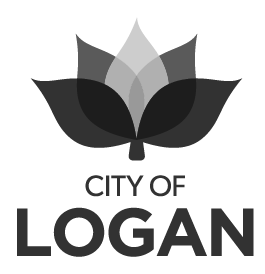What makes a happy volunteer?
Did you know that the average Australian volunteer spends 2.5 hours per week volunteering? If your volunteers are spending well over that amount, which they most likely are, congratulations, your organisation is full of above average volunteers!
Unfortunately volunteer rates are declining. Volunteering Australia’s State of Volunteering in Australia reports that there’s been a decline in formal volunteering over the past 5 years. Most clubs already know this because they struggle to find new volunteers. The same people put their hands up year after year because they think no one else is going to step up.
What’s stopping people from volunteering?
Most people have busy lives with work, kids, family and all the stresses that go with it. The last thing they need is another job to do. “I pay my kid’s fees, why should I have to volunteer as well? Why should I have to get up an hour earlier on Saturday morning to help in the canteen before my daughter’s netball game? Don’t you have paid staff for that?” The general perception of volunteering is that it’s time consuming, boring and inflexible.
So why do people volunteer?
Some people become volunteers because they want to feel good about themselves by making a difference and giving something back to the community. They might have kids who are members of a club and want to help out for the benefit of their kids, or they may just want a fee discount. There are retired people who are looking for something to do and those who are looking to make friends. Volunteers come from all walks of life, but one thing is consistent across the board - they want to feel valued.
Volunteers can feel undervalued if they are just used as ‘manpower’. A volunteer’s title might be Grants Coordinator, but they often end up running events, helping with maintenance, cleaning toilets and chipping in on other little jobs that need ‘all hands on deck’, leaving no time to look for grants!
Volunteering Australia found that volunteers feel happiest when they perform a role that suits their individual skills. So even if you appreciate the work they do, if you are constantly asking volunteers to step outside their roles, they can feel undervalued.
To provide value and fulfillment, the right volunteers need to be in the right roles.
So how do you identify roles where volunteers can feel valued? As a committee, have you sat down and critically looked at your current volunteer roles to see if there are enough, or maybe too many? Have you asked your members at sign-on, via an online survey, or best of all, face-to-face, what kind of roles would interest them and suit their skills?
If the average volunteer spends 2.5 hours per week volunteering and half of that time is taken up with administration and data entry, there is just over an hour of usable time left to perform their actual role. If you could remove some of the form filling and hack work, volunteers could focus their energy on the things they are good at. Enter the virtual volunteer!
There are a plethora of apps, programs and online platforms to manage club data and compliance tasks that can be accessed by ‘virtual volunteers’. Tasks including social media management, asset management and membership data management can be completed online at a time and place that suits the volunteer. Virtual volunteering provides a flexible option for people who would like to help, but can’t take on traditional volunteering roles due to time constraints.
Volunteer recruitment is also moving online. Volunteers under 24 years of age are more likely to use an online source such as GoVolunteer or Seek Volunteer to look for volunteering opportunities.
Happy volunteers are those that feel valued, fulfilled and supported in their role. They only spend the amount of time volunteering that they want to commit to, and they spend all of that time on the most productive tasks.
Volunteers are the heart of your club, so it is vital that you value and appreciate them as your most precious resource.




























